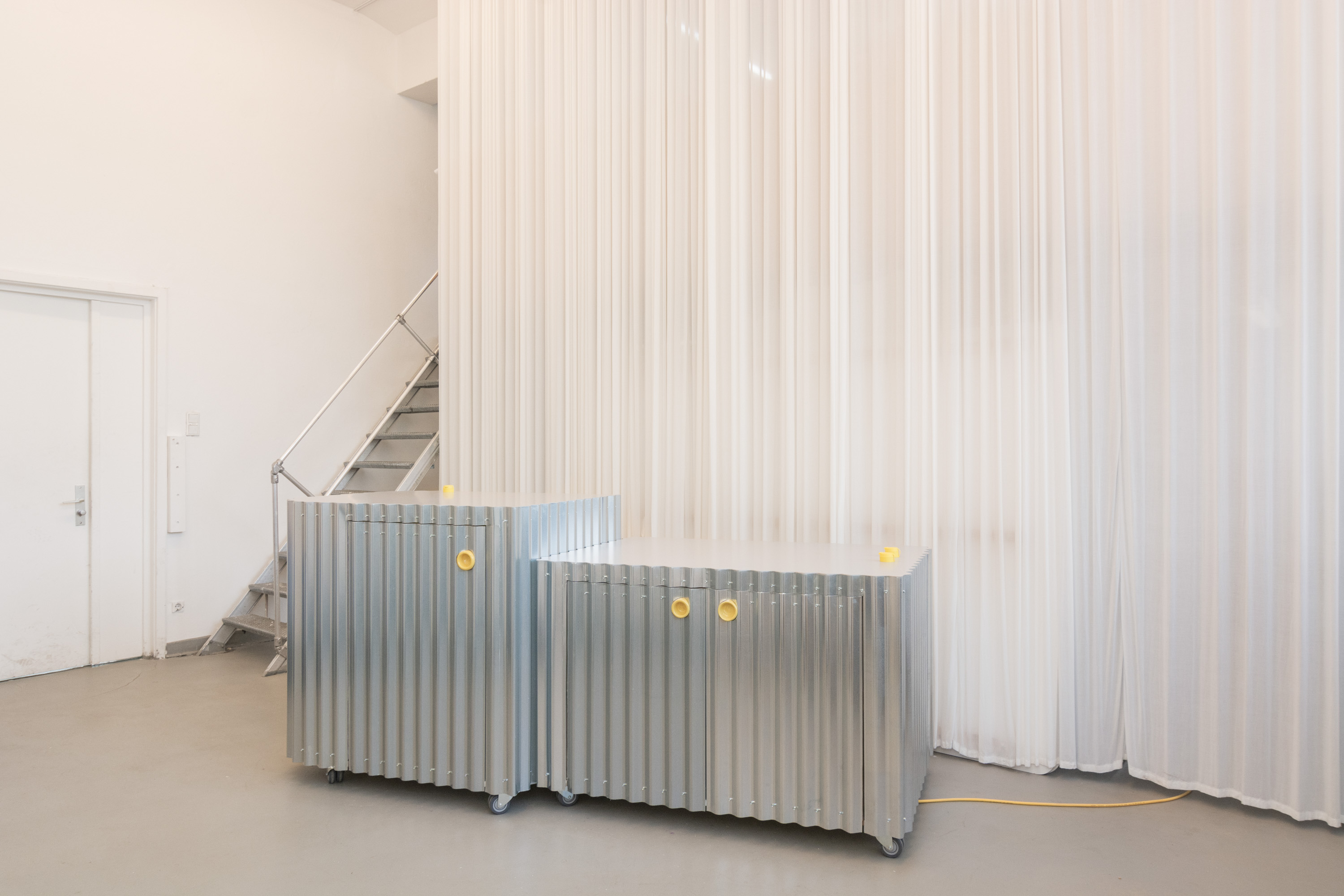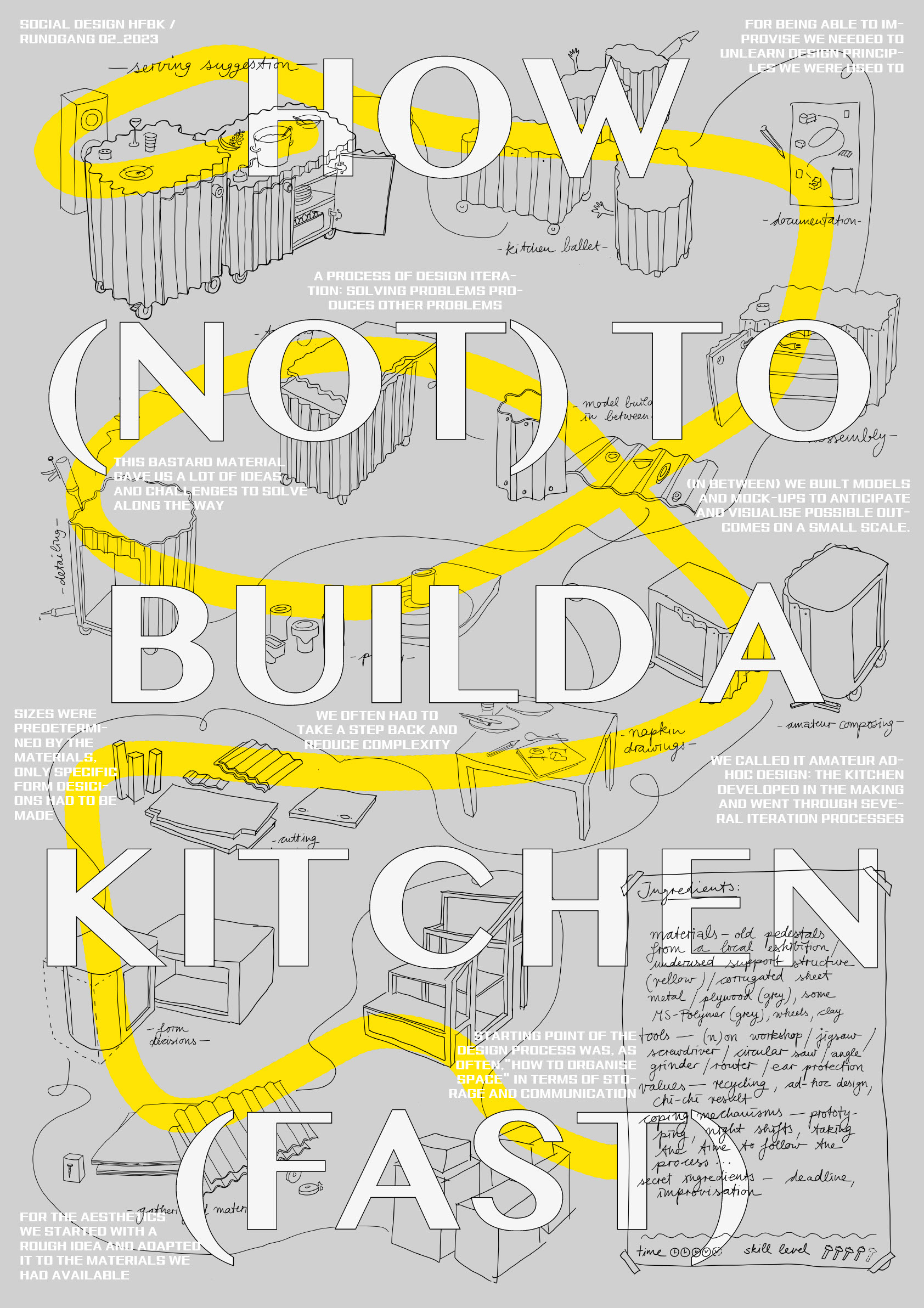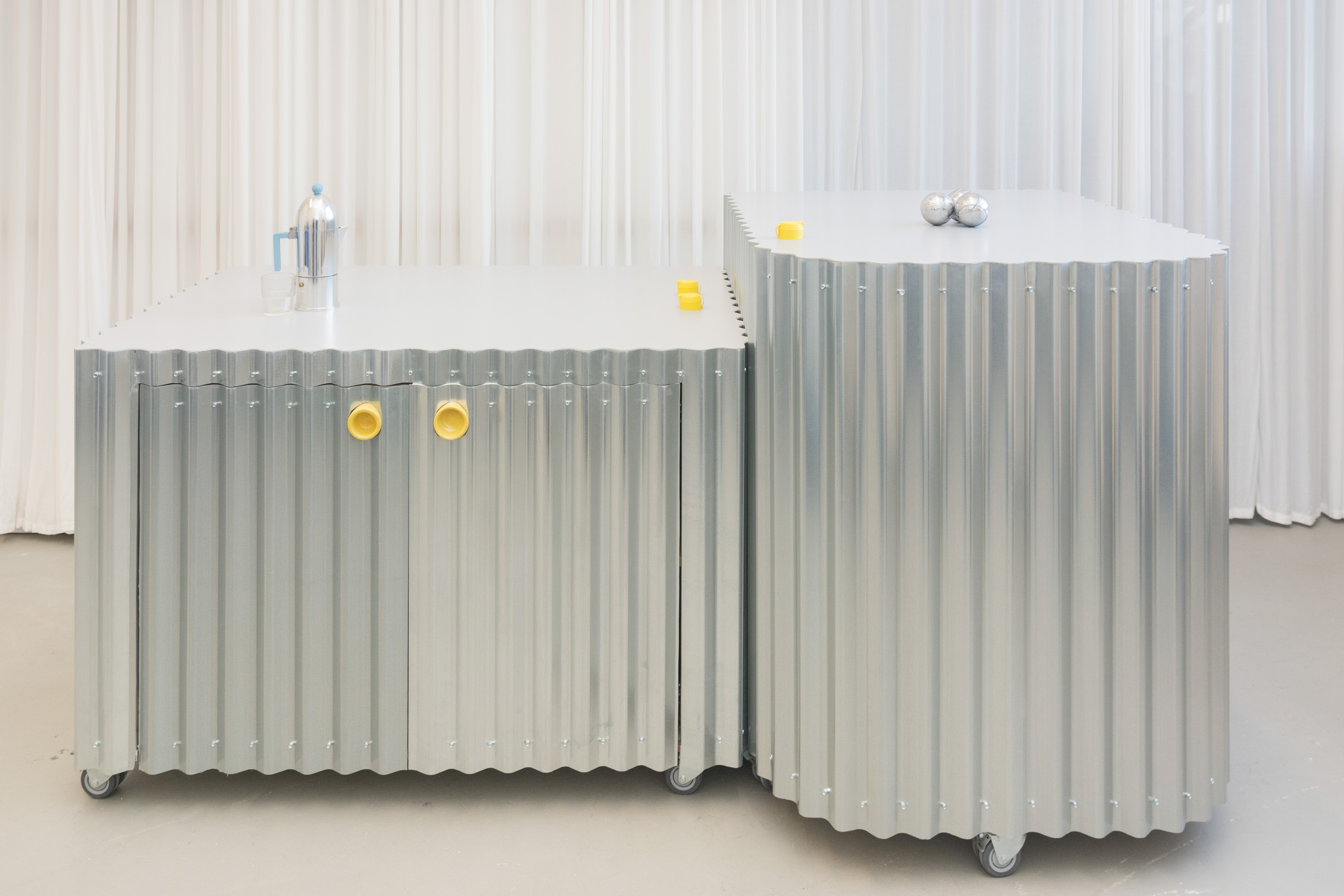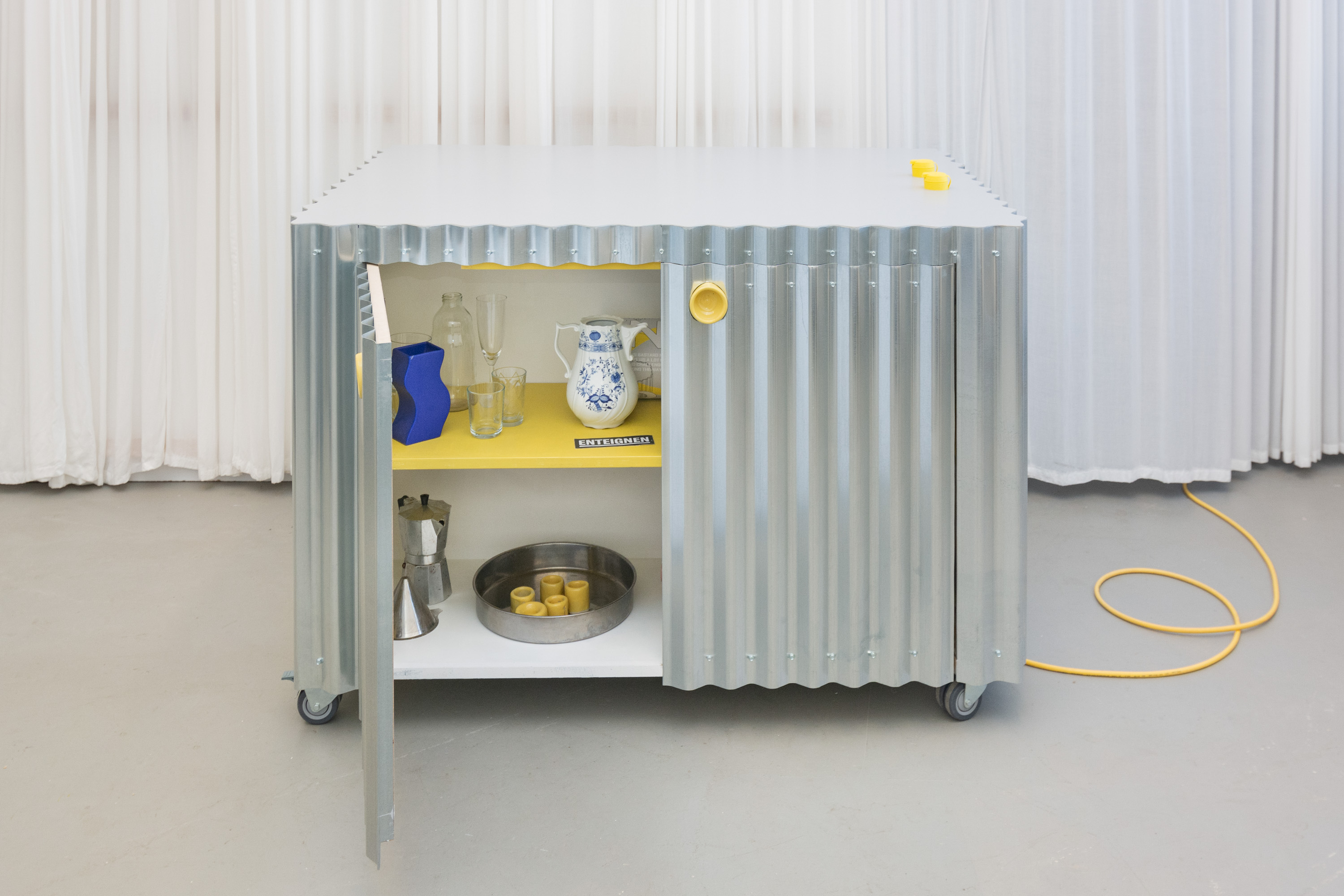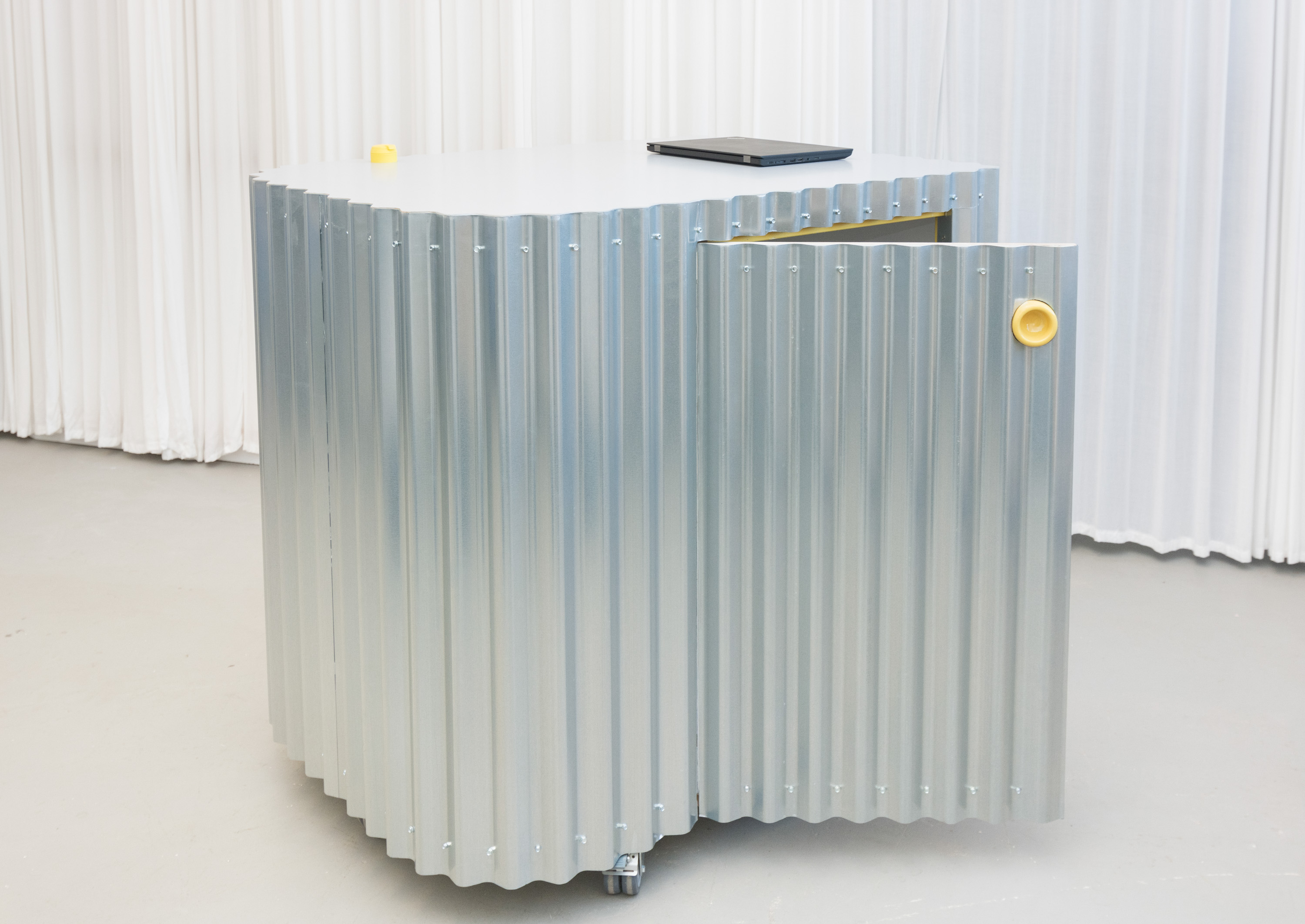How (not) to build a kitchen (fast)
january 2023 / social design hfbk hamburg
materials: old pedestals from a local exhibition; underused class infrastructure; plywood (grey); some MS-Polymer (grey); wheels; clay // tools: (n)on workshop; jigsaw; screwdriver; circular saw; angle grinder; router; ear protection // values: recycling; ad-hoc design; chi-chi result // coping mechanisms: prototyping; night shifts; taking time to engage with the process // secret ingredients: deadline; improvisation // team: Thies Warnke, Anna Stapelfeldt, Anna Ulmer
A movable kitchen for the Social Design Studio at HFBK Hamburg: The starting point of the design process was, as so often, the question of "How to organize space?" in terms of storage and communication. For the aesthetics, we started from a rough idea and adapted it to the materials available to us. These [corrugated sheet metal and human-sized pedestals] gave us a lot of ideas and challenges to solve along the way. The sizes were predetermined by the materials; we just had to make specific shape decisions. We called it ad hoc design: the kitchen developed during the making and went through several iterations. Solving some problems often led to other problems. In between, we built models and mock-ups to anticipate and visualize possible outcomes on a small scale. Often we had to take a step back and reduce complexity.
A process of design iteration and improvisation - working in this way required us to unlearn some already internalized design principles.
